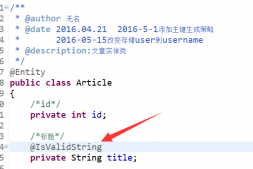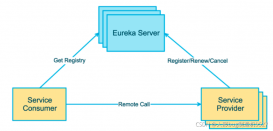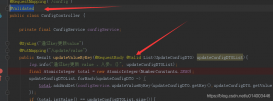项目中我们经常会遇到多数据源的问题,尤其是数据同步或定时任务等项目更是如此。多数据源让人最头痛的,不是配置多个数据源,而是如何能灵活动态的切换数据源。例如在一个spring和hibernate的框架的项目中,我们在spring配置中往往是配置一个dataSource来连接数据库,然后绑定给sessionFactory,在dao层代码中再指定sessionFactory来进行数据库操作。

正如上图所示,每一块都是指定绑死的,如果是多个数据源,也只能是下图中那种方式。

可看出在Dao层代码中写死了两个SessionFactory,这样日后如果再多一个数据源,还要改代码添加一个SessionFactory,显然这并不符合开闭原则。
那么正确的做法应该是

代码如下:
1. applicationContext.xml
|
1
2
3
4
5
6
7
8
9
10
11
12
13
14
15
16
17
18
19
20
21
22
23
24
25
26
27
28
29
30
31
32
33
34
35
36
37
38
39
40
41
42
43
44
45
46
47
48
49
50
51
52
53
54
55
56
57
58
59
60
61
62
63
64
65
66
67
68
69
70
71
72
73
74
75
76
77
78
79
80
81
82
83
84
85
86
87
88
89
90
91
92
93
94
95
96
97
98
99
100
101
102
103
104
105
106
107
108
109
110
111
112
113
114
115
|
<?xml version="1.0" encoding="UTF-8"?> <beans xmlns="http://www.springframework.org/schema/beans" xmlns:xsi="http://www.w3.org/2001/XMLSchema-instance" xmlns:aop="http://www.springframework.org/schema/aop" xmlns:cache="http://www.springframework.org/schema/cache" xmlns:context="http://www.springframework.org/schema/context" xmlns:jdbc="http://www.springframework.org/schema/jdbc" xmlns:jee="http://www.springframework.org/schema/jee" xmlns:jms="http://www.springframework.org/schema/jms" xmlns:lang="http://www.springframework.org/schema/lang" xmlns:mvc="http://www.springframework.org/schema/mvc" xmlns:oxm="http://www.springframework.org/schema/oxm" xmlns:p="http://www.springframework.org/schema/p" xmlns:task="http://www.springframework.org/schema/task" xmlns:tx="http://www.springframework.org/schema/tx" xmlns:util="http://www.springframework.org/schema/util" xsi:schemaLocation="http://www.springframework.org/schema/beans http://www.springframework.org/schema/beans/spring-beans.xsd http://www.springframework.org/schema/aop http://www.springframework.org/schema/aop/spring-aop-3.1.xsd http://www.springframework.org/schema/cache http://www.springframework.org/schema/cache/spring-cache-3.1.xsd http://www.springframework.org/schema/context http://www.springframework.org/schema/context/spring-context-3.1.xsd http://www.springframework.org/schema/jdbc http://www.springframework.org/schema/jdbc/spring-jdbc-3.1.xsd http://www.springframework.org/schema/jee http://www.springframework.org/schema/jee/spring-jee-3.1.xsd http://www.springframework.org/schema/jms http://www.springframework.org/schema/jms/spring-jms-3.1.xsd http://www.springframework.org/schema/lang http://www.springframework.org/schema/lang/spring-lang-3.1.xsd http://www.springframework.org/schema/mvc http://www.springframework.org/schema/mvc/spring-mvc-3.1.xsd http://www.springframework.org/schema/oxm http://www.springframework.org/schema/oxm/spring-oxm-3.1.xsd http://www.springframework.org/schema/task http://www.springframework.org/schema/task/spring-task-3.1.xsd http://www.springframework.org/schema/tx http://www.springframework.org/schema/tx/spring-tx-3.1.xsd http://www.springframework.org/schema/util http://www.springframework.org/schema/util/spring-util-3.1.xsd"> <context:annotation-config /> <context:component-scan base-package="com"></context:component-scan> <bean class="org.springframework.beans.factory.config.PropertyPlaceholderConfigurer"> <property name="locations"> <list> <value>classpath:com/resource/config.properties</value> </list> </property> </bean> <bean id="dataSourceOne" class="com.mchange.v2.c3p0.ComboPooledDataSource" destroy-method="close"> <property name="driverClass" value="${dbOne.jdbc.driverClass}" /> <property name="jdbcUrl" value="${dbOne.jdbc.url}" /> <property name="user" value="${dbOne.jdbc.user}" /> <property name="password" value="${dbOne.jdbc.password}" /> <property name="initialPoolSize" value="${dbOne.jdbc.initialPoolSize}" /> <property name="minPoolSize" value="${dbOne.jdbc.minPoolSize}" /> <property name="maxPoolSize" value="${dbOne.jdbc.maxPoolSize}" /> </bean> <bean id="dataSourceTwo" class="com.mchange.v2.c3p0.ComboPooledDataSource" destroy-method="close"> <property name="driverClass" value="${dbTwo.jdbc.driverClass}" /> <property name="jdbcUrl" value="${dbTwo.jdbc.url}" /> <property name="user" value="${dbTwo.jdbc.user}" /> <property name="password" value="${dbTwo.jdbc.password}" /> <property name="initialPoolSize" value="${dbTwo.jdbc.initialPoolSize}" /> <property name="minPoolSize" value="${dbTwo.jdbc.minPoolSize}" /> <property name="maxPoolSize" value="${dbTwo.jdbc.maxPoolSize}" /> </bean> <bean id="dynamicDataSource" class="com.core.DynamicDataSource"> <property name="targetDataSources"> <map key-type="java.lang.String"> <entry value-ref="dataSourceOne" key="dataSourceOne"></entry> <entry value-ref="dataSourceTwo" key="dataSourceTwo"></entry> </map> </property> <property name="defaultTargetDataSource" ref="dataSourceOne"> </property> </bean> <bean id="sessionFactory" class="org.springframework.orm.hibernate4.LocalSessionFactoryBean"> <property name="dataSource" ref="dynamicDataSource" /> <property name="hibernateProperties"> <props> <prop key="hibernate.dialect">org.hibernate.dialect.MySQLDialect</prop> <prop key="hibernate.current_session_context_class">org.springframework.orm.hibernate4.SpringSessionContext</prop> <prop key="hibernate.show_sql">false</prop> <prop key="hibernate.format_sql">true</prop> <prop key="hbm2ddl.auto">create</prop> </props> </property> <property name="packagesToScan"> <list> <value>com.po</value> </list> </property> </bean> <bean id="transactionManager" class="org.springframework.orm.hibernate4.HibernateTransactionManager"> <property name="sessionFactory" ref="sessionFactory" /> </bean> <aop:config> <aop:pointcut id="transactionPointCut" expression="execution(* com.dao..*.*(..))" /> <aop:advisor advice-ref="txAdvice" pointcut-ref="transactionPointCut" /> </aop:config> <tx:advice id="txAdvice" transaction-manager="transactionManager"> <tx:attributes> <tx:method name="add*" propagation="REQUIRED" /> <tx:method name="save*" propagation="REQUIRED" /> <tx:method name="update*" propagation="REQUIRED" /> <tx:method name="delete*" propagation="REQUIRED" /> <tx:method name="*" read-only="true" /> </tx:attributes> </tx:advice> <aop:config> <aop:aspect id="dataSourceAspect" ref="dataSourceInterceptor"> <aop:pointcut id="daoOne" expression="execution(* com.dao.one.*.*(..))" /> <aop:pointcut id="daoTwo" expression="execution(* com.dao.two.*.*(..))" /> <aop:before pointcut-ref="daoOne" method="setdataSourceOne" /> <aop:before pointcut-ref="daoTwo" method="setdataSourceTwo" /> </aop:aspect> </aop:config> </beans> |
2. DynamicDataSource.class
|
1
2
3
4
5
6
7
8
9
10
11
12
|
package com.core; import org.springframework.jdbc.datasource.lookup.AbstractRoutingDataSource; public class DynamicDataSource extends AbstractRoutingDataSource{ @Override protected Object determineCurrentLookupKey() { return DatabaseContextHolder.getCustomerType(); } } |
3. DatabaseContextHolder.class
|
1
2
3
4
5
6
7
8
9
10
11
12
13
14
15
16
17
18
|
package com.core; public class DatabaseContextHolder { private static final ThreadLocal<String> contextHolder = new ThreadLocal<String>(); public static void setCustomerType(String customerType) { contextHolder.set(customerType); } public static String getCustomerType() { return contextHolder.get(); } public static void clearCustomerType() { contextHolder.remove(); } } |
4. DataSourceInterceptor.class
|
1
2
3
4
5
6
7
8
9
10
11
12
13
14
15
16
|
package com.core; import org.aspectj.lang.JoinPoint; import org.springframework.stereotype.Component; @Componentpublic class DataSourceInterceptor { public void setdataSourceOne(JoinPoint jp) { DatabaseContextHolder.setCustomerType("dataSourceOne"); } public void setdataSourceTwo(JoinPoint jp) { DatabaseContextHolder.setCustomerType("dataSourceTwo"); } } |
5. po实体类
|
1
2
3
4
5
6
7
8
9
10
11
12
13
14
15
16
17
18
19
20
21
22
23
24
25
26
27
28
29
30
31
32
33
34
35
36
37
38
39
40
41
42
43
|
package com.po; import javax.persistence.Column; import javax.persistence.Entity; import javax.persistence.Id; import javax.persistence.Table; @Entity@Table(name = "BTSF_BRAND", schema = "hotel") public class Brand { private String id; private String names; private String url; @Id @Column(name = "ID", unique = true, nullable = false, length = 10) public String getId() { return this.id; } public void setId(String id) { this.id = id; } @Column(name = "NAMES", nullable = false, length = 50) public String getNames() { return this.names; } public void setNames(String names) { this.names = names; } @Column(name = "URL", length = 200) public String getUrl() { return this.url; } public void setUrl(String url) { this.url = url; } } |
|
1
2
3
4
5
6
7
8
9
10
11
12
13
14
15
16
17
18
19
20
21
22
23
24
25
26
27
28
29
30
31
32
33
|
package com.po; import javax.persistence.Column; import javax.persistence.Entity; import javax.persistence.Id; import javax.persistence.Table; @Entity@Table(name = "CITY", schema = "car") public class City { private Integer id; private String name; @Id @Column(name = "ID", unique = true, nullable = false) public Integer getId() { return id; } public void setId(Integer id) { this.id = id; } @Column(name = "NAMES", nullable = false, length = 50) public String getName() { return name; } public void setName(String name) { this.name = name; } } |
6. BrandDaoImpl.class
|
1
2
3
4
5
6
7
8
9
10
11
12
13
14
15
16
17
18
19
20
21
22
23
24
25
26
|
package com.dao.one; import java.util.List; import javax.annotation.Resource; import org.hibernate.Query; import org.hibernate.SessionFactory; import org.springframework.stereotype.Repository; import com.po.Brand; @Repositorypublic class BrandDaoImpl implements IBrandDao { @Resource protected SessionFactory sessionFactory; @SuppressWarnings("unchecked") @Override public List<Brand> findAll() { String hql = "from Brand"; Query query = sessionFactory.getCurrentSession().createQuery(hql); return query.list(); } } |
7. CityDaoImpl.class
|
1
2
3
4
5
6
7
8
9
10
11
12
13
14
15
16
17
18
19
20
21
22
23
24
25
26
|
package com.dao.two; import java.util.List; import javax.annotation.Resource; import org.hibernate.Query; import org.hibernate.SessionFactory; import org.springframework.stereotype.Repository; import com.po.City; @Repositorypublic class CityDaoImpl implements ICityDao { @Resource private SessionFactory sessionFactory; @SuppressWarnings("unchecked") @Override public List<City> find() { String hql = "from City"; Query query = sessionFactory.getCurrentSession().createQuery(hql); return query.list(); } } |
8. DaoTest.class
|
1
2
3
4
5
6
7
8
9
10
11
12
13
14
15
16
17
18
19
20
21
22
23
24
25
26
27
28
29
30
31
32
33
34
35
36
37
|
package com.test; import java.util.List; import javax.annotation.Resource; import org.junit.Test; import org.junit.runner.RunWith; import org.springframework.test.context.ContextConfiguration; import org.springframework.test.context.junit4.SpringJUnit4ClassRunner; import org.springframework.test.context.transaction.TransactionConfiguration; import com.dao.one.IBrandDao; import com.dao.two.ICityDao; import com.po.Brand; import com.po.City; @RunWith(SpringJUnit4ClassRunner.class) @ContextConfiguration(locations = "classpath:com/resource/applicationContext.xml") @TransactionConfiguration(transactionManager = "transactionManager", defaultRollback = false) public class DaoTest { @Resource private IBrandDao brandDao; @Resource private ICityDao cityDao; @Test public void testList() { List<Brand> brands = brandDao.findAll(); System.out.println(brands.size()); List<City> cities = cityDao.find(); System.out.println(cities.size()); } } |
利用aop,达到动态更改数据源的目的。当需要增加数据源的时候,我们只需要在applicationContext配置文件中添加aop配置,新建个DataSourceInterceptor即可。而不需要更改任何代码。
以上就是本文的全部内容,希望对大家的学习有所帮助,也希望大家多多支持服务器之家。
原文链接:http://blog.csdn.net/wangpeng047/article/details/8866239















